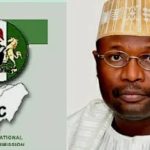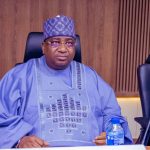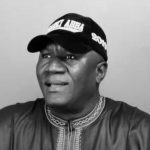In places where much of the public seems unsure of how the governance works, whistleblowers play a very important role in reformation. Nigeria, with its multi-system problems, one of which is in the health sector, needs its change agents and woke leadership.
Recent events in Kebbi State show how whistleblowers supported by the needed political will can bring about powerful change for the better.
Citizen whistleblower Dan Bello was the first to draw attention to the sorry state of health care facilities in Kebbi, with broken equipment, empty medicine cabinets, and staff who never show up for work.
In a positive move, Mr. Governor Nasir Idris suspended the health commissioner, Alhaji Yunusa Musa-Ismail, and placed him on pending investigation. This move, which is in the region with the greatest whistleblower protection, serves to ensure the accountability that is also ruled in.
The unique element in Kebbi is how the region does not engage in a “damage control” mentality. Governor Idris is not shying away from a culture of accountability, even if it means dealing with the backlash.
Earlier this year, he also established the Kebbi State Commission for Persons with Disabilities, being attuned to the voice of the marginalized.
Furthermore, the introduction of solar-powered irrigation pumps by the government to farmers demonstrates a tangible effort at addressing bottom-up requirements, reinforcing the report that transparency is not merely lip service but action.
Although recent measures have met general provisional approval, the Idris administration continues to be severely criticized for seemingly showing no respect for transparency and accountability.
The arrest of blogger Hassan Mai-Waya Kangiwa, who had done a story on deplorable conditions at Kangiwa General Hospital, raised critical questions about freedom of the press and protection of whistleblowers. Media Rights Agenda (MRA) condemned the arrest, blaming Governor Idris for violating international best practices on the public’s right to information, and demanding Kangiwa be released.
Facing growing public pressure, the governor ordered the release of Kangiwa four days later. After investigation, it was confirmed that the arrest had been carried out by an overzealous officer without the prior consultation of the governor. This led to disciplinary action, which led to the suspension of the concerned commissioner.
The episode highlights an extremely significant truth: that the success of whistleblowing mechanisms relies not solely on legislation but also on a broader culture of institutional accountability and a respect for civil liberties.
In the United States, robust legislation like the Whistleblower Protection Act protects people from revealing offenses without fear of reprisal. Nigeria’s legal frameworks, however, are unpredictable, and cultural stigmatizations frequently silence potential whistleblowers.
However, Kebbi’s reaction to this case suggests maybe a new path toward a more facilitative political culture, where citizens are provoked to engage actively in governance rather than as passive spectators.
This case has a valuable lesson: the impact of whistleblowing is maximized or minimized by the response it elicits. Where there is retribution or dismissiveness, whistleblowers risk their well-being and livelihoods, deterring future exposures.
Conversely, when leaders like Governor Idris react with dignity, it can snowball into more citizens coming forward, exposing corruption, and rebuilding public confidence little by little.
The suspension of Musa-Ismail must not be considered a finale but as an introduction to a proper, transparent investigation and substantive reforms in the healthcare system of Kebbi. Intimations of improvement are already visible, with the Idris administration speeding up the renovation of five primary health centers and commencing an audit of medical supply chains.
If these efforts pay off in the long run, Kebbi might establish a template for accountability not only in Nigeria but worldwide in similar contexts.
The Kebbi lesson can be followed everywhere: leadership flourishes when it listens to the people. Whistleblowing is in no sense an act of treachery, but rather a civic duty to democracy, serving as a check on mistakes, an enforcer of integrity, and a reminder that public office is in the first place to serve the people.
As Nigeria continues to struggle with health, education, and infrastructure issues, the courage of individuals like Dan Bello, as well as the responsiveness of leaders like Governor Idris, holds forth a hopeful model of transformation.
The interplay between citizen mobilization and government responsibility holds the promise of greater justice and more efficient government, and the world will be observing.
The world will be observing.
By Suleiman Abdullahi Dawakin Kudu writes from Kano. He can be reached at suleimanasuleiman476@gmail.com





